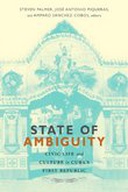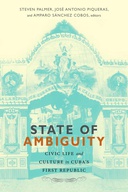Explore

State of Ambiguity
0 Ungluers have
Faved this Work
Login to Fave
Cuba's first republican era (1902–1959) is principally understood in terms of its failures and discontinuities, its first three decades and the overthrow of Machado seen at best as a prologue to the "real" revolution of 1959. This book brings together scholars from North America, Cuba, and Spain to challenge this narrative, presenting republican Cuba instead as a time of meaningful engagement—socially, politically, and symbolically. Addressing a wide range of topics—civic clubs and folkloric societies, science, public health and agrarian policies, popular culture, national memory, and the intersection of race and labor—the contributors explore how a broad spectrum of Cubans embraced a political and civic culture of national self-realization. These essays recast the first republic as a time of deep continuity in processes of liberal state- and nation-building that were periodically disrupted—but also reinvigorated—by foreign intervention and profound uncertainty.
This book is included in DOAB.
Why read this book? Have your say.
You must be logged in to comment.
Rights Information
Are you the author or publisher of this work? If so, you can claim it as yours by registering as an Unglue.it rights holder.Downloads
This work has been downloaded 161 times via unglue.it ebook links.
- 66 - pdf (CC BY-NC-ND) at OAPEN Library.
- 58 - pdf (CC BY-NC-ND) at Unglue.it.
Keywords
- Anarchism
- Cuba
- Havana
- History
- History / Caribbean & West Indies
- History / Caribbean & West Indies / Cuba
- History of the Americas
- Humanities
- KUnlatched
- Regional & national history
- thema EDItEUR::N History and Archaeology::NH History::NHK History of the Americas
- United States
Links
DOI: 10.26530/oapen_625261Editions


